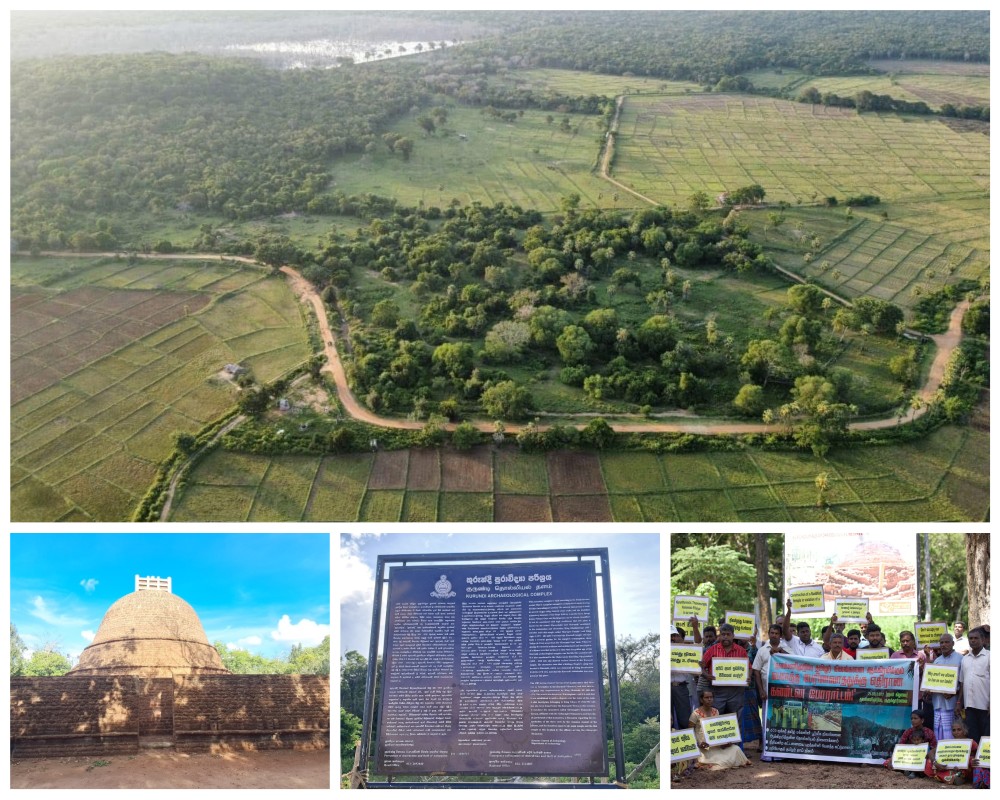News and events
Kurunthurmalai: Undermining justice and silencing community resistance through Statesponsored land misappropriation
2025-11-14

Across Sri Lankas NorthEast, Tamil communities are facing an escalating wave of statebacked land seizures, historical falsification, and forced displacementposing urgent questions about justice, rights, and the integrity of democratic governance.
In Kurunthurmalai, a sacred Tamil site in Mullaitivu, Tamil families and local officials have condemned the Sri Lankan Department of Archaeology for seizing hundreds of acres of ancestral land under the guise of archaeological conservation. Despite court injunctions, a Buddhist vihara was illegally constructed atop an ancient Tamil temple site, with the support of state authorities and the military. Display boards linking the area to SinhalaBuddhist myths were installedprompting outrage and allegations of cultural erasure.
Shocking claims have since emerged from a Sinhala Buddhist monk, who accused a senior archaeological officer of planting artefacts to falsely suggest Buddhist heritage in the areaan act he reported to the CID.
This comes amidst a wider campaign of dispossession. In Mayilaththamadu and Mathavanai, Tamil farmers marked two years of continuous protest, demanding the return of over 3,000 hectares of grazing land that Sinhala settlers had unlawfully seized. Despite their peaceful vigil, their calls remain unheeded, while their livelihoods continue to suffer under the shadow of violence and impunity.
Adding to concerns, the government has appointed 19 Sinhala memberswith no Tamil or Muslim representationto Sri Lankas Archaeology Advisory Committee, further consolidating SinhalaBuddhist control over Tamil heritage and excluding affected communities from decisionmaking.
These incidents form part of a longstanding state policy that leverages archaeological, forestry, and religious institutions to alter the demographics of the Tamil homeland. Activists warn that this amounts to a coordinated hate campaigna violation of minority rights and religious freedom.
Though the government claims to promote reconciliation and unity through events like the newly declared Sri Lankan Day curiously placed under the Ministry of Buddhasasana, the lived reality in the NorthEast tells a different story: continued militarization, enforced disappearances, and systemic exclusion.
What remains clear is that Tamil communities are not silent. From peaceful protestors to local officials, they continue to resist displacement and demand justicenot only for stolen land, but for their erasure from the islands narrative. The international community must now respondnot with symbolic gestures, but with meaningful pressure for accountability and reform.
Contact Details
No: 33
Sagara Road
Bambalapitiya
Sri Lanka
Telephone: (+94) 11 250 6001
Fax: (+94) 11 250 6002



